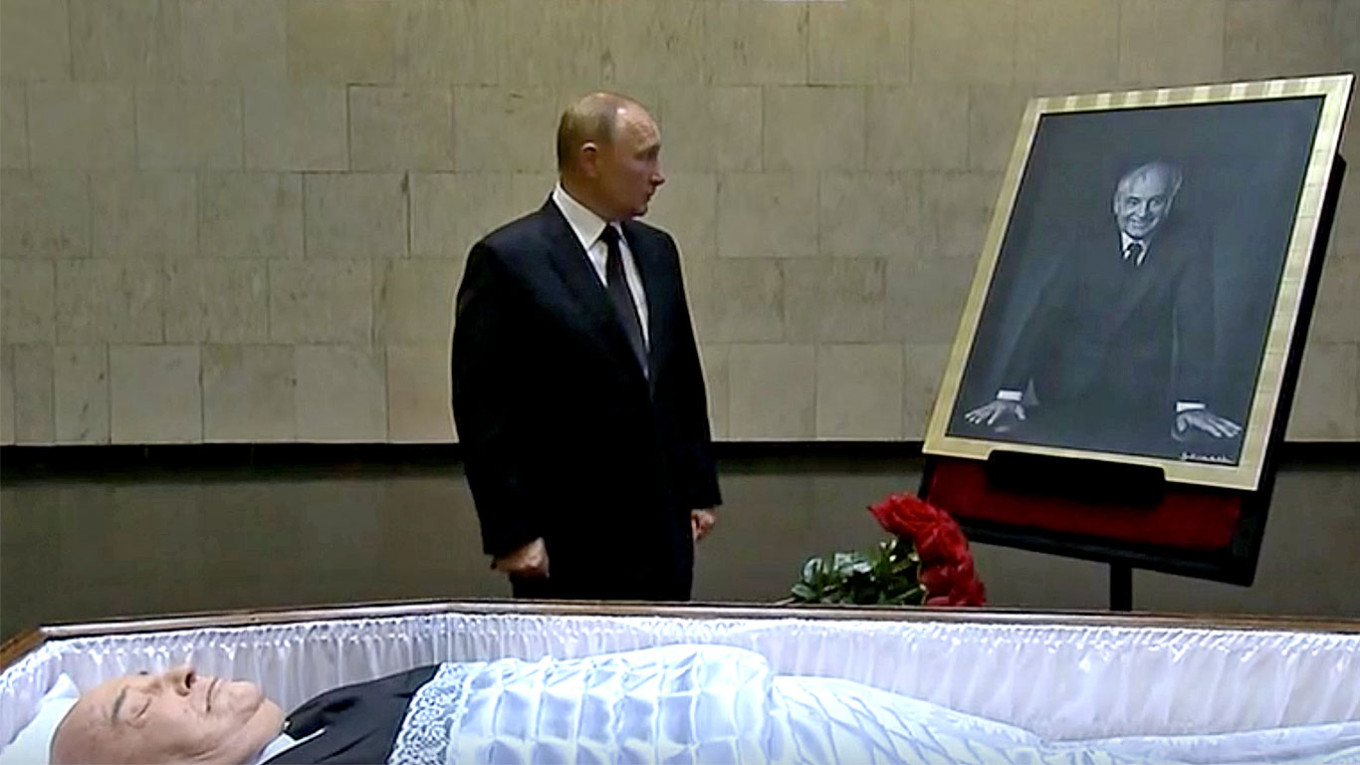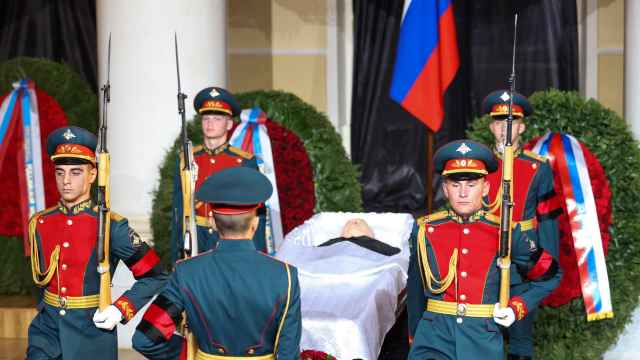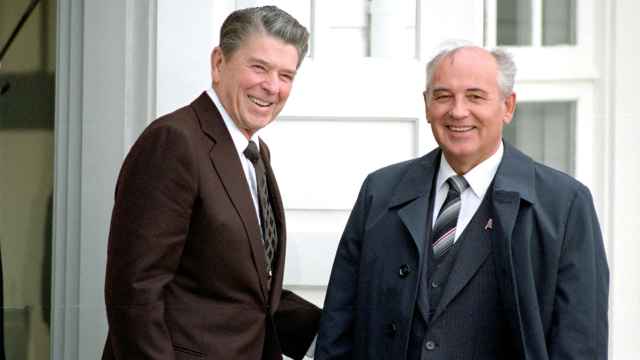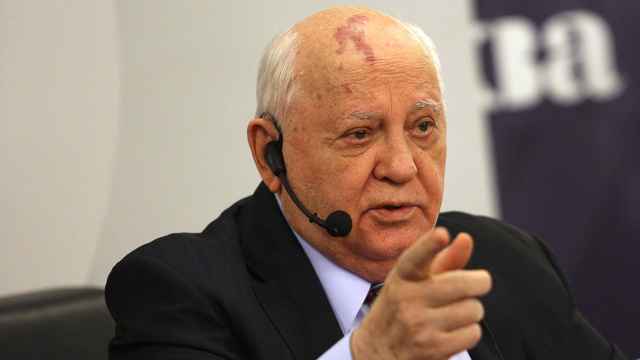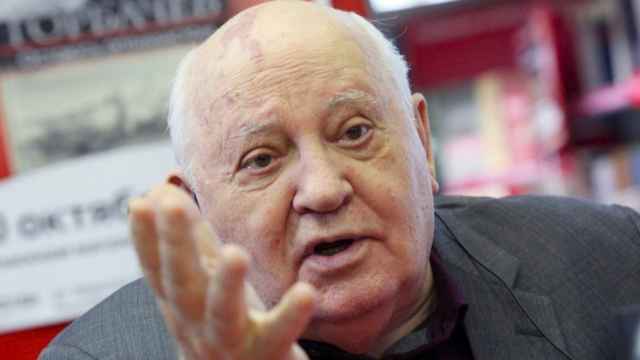Russian President Vladimir Putin will not attend the funeral of the last Soviet leader Mikhail Gorbachev, presidential spokesperson Dmitry Peskov said Thursday.
“Unfortunately, the president's work schedule will not allow him [to attend],” Peskov told reporters.
Instead, Putin visited Thursday the hospital where Gorbachev died two days earlier at the age of 91 and placed flowers in Moscow’s House of Unions where Gorbachev is currently lying in state.
The funeral of Gorbachev, who led the Soviet Union through its final years, will take place in Moscow on Saturday and have “elements” of a state funeral including a guard of honor, according to Peskov.
The ceremony will be held in the House of Unions’ Hall of Columns, which has historically been used for the funeral services of top officials — like Josef Stalin in 1953.
After the ceremony, Gorbachev will be buried in Moscow’s Novodevichy Cemetery alongside his wife, Raisa. Russia’s first post-Soviet president, Boris Yeltsin, was also interred in Novodevichy Cemetery.
While Gorbachev is revered by many in the West as the leader who helped end the Cold War, many Russians are more ambiguous about his legacy, in part because of the hardship and poverty of the 1990s.
Putin has had a complicated relationship with Gorbachev, who was in charge of the Soviet as it fell apart, an event Putin famously referred to as “the biggest geopolitical catastrophe of the century.”
Likewise, Gorbachev alternated between admiration and criticism of Putin.
When Putin came to power more than 20 years ago, Gorbachev described Putin as "intelligent, serious, reserved and well-organized.”
While fraud-tainted 2011 parliamentary elections soured Gorbachev’s attitude for a while, by the time Putin ran for an historic fourth term in 2018, Gorbachev was saying Putin was the kind of leader Russia needed in a "very complicated international situation."
AFP contributed reporting.
A Message from The Moscow Times:
Dear readers,
We are facing unprecedented challenges. Russia's Prosecutor General's Office has designated The Moscow Times as an "undesirable" organization, criminalizing our work and putting our staff at risk of prosecution. This follows our earlier unjust labeling as a "foreign agent."
These actions are direct attempts to silence independent journalism in Russia. The authorities claim our work "discredits the decisions of the Russian leadership." We see things differently: we strive to provide accurate, unbiased reporting on Russia.
We, the journalists of The Moscow Times, refuse to be silenced. But to continue our work, we need your help.
Your support, no matter how small, makes a world of difference. If you can, please support us monthly starting from just $2. It's quick to set up, and every contribution makes a significant impact.
By supporting The Moscow Times, you're defending open, independent journalism in the face of repression. Thank you for standing with us.
Remind me later.


